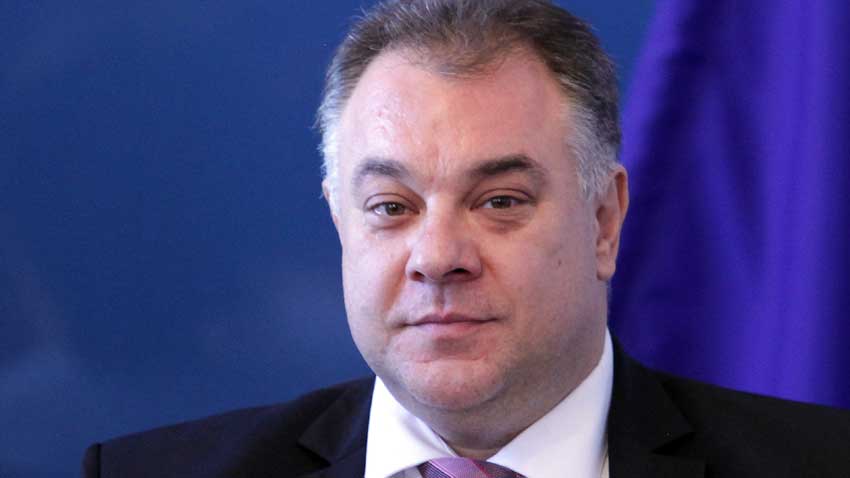The caretaker Minister of Healthcare Dr. Miroslav Nenkov has announced that there must be clear instructions to which hospitals patients should be transported, no matter whether there is an emergency case or it is a matter of invasive cardiology. For this purpose ambulances and hospitals will be keeping frequent contacts, in order to know the number of available hospital beds.
"The plan for development of emergency health services in Bulgaria has yet to be discussed and for this reason we will begin tours in the country and will organize regional meetings," the Minister of Healthcare added. When it comes to people who died in the street, they will be transported by vehicles of the Alexandrovska Hospital in Sofia, it was reported.
Another important change concerns the length of the working days in the Sofia emergency center.

The minister pointed out that the work of the health ministry will be hampered if money from it is transferred for the update of the budget of the National Health Insurance Fund (NHIF).
Speaking about procurement procedures organized in the last days in office of the administration of the Oresharski Cabinet, the Health Minister announced that they have already been stopped. They total 25 million levs, as 12 million would have been used for e-Health development; 5 million would have been spent for construction and repair works in emergency centers and 8 million were allocated for buying medical equipment. Separately another contract worth millions of levs for the purchase of supplies for donated equipment for blood tests was signed.
The e-Health project has been halted because a check run by Dr. Nenkov revealed that Germany offered free training in the sphere. Thus, Bulgarian doctors will be able to specialize in e-health services and then return to work in the country. The reason for the stopped 5 million levs for repair works in emergency centers in the country is that they are part of the local hospitals, which are municipal property. The Ministry of Healthcare has no right to spend money for repairing something it does not own.
Another problem in Bulgarian healthcare is the lack of medical personnel. According to data by neurosurgeon Dr. Emanuel Naydenov of the Young Doctors for New Healthcare Initiative, 96% of medics in Bulgaria, including students were willing to go abroad. That is why the average age of doctors in Bulgaria is 55 years.
Minister Nenkov told Radio Bulgaria what was needed in order to keep young doctors in this country.
"I am not sure if so many doctors truly want to leave Bulgaria but the ways to keep young medics in this country are good working conditions and more money! Opportunities for career and professional development are also good stimuli.”
English: Alexander Markov
Who said Bulgarians were grumpy pessimists? Take a stroll through Sofia's Christmas bazaars and meet the cheerful crowd. The festive decorations, music, merry-go-rounds and stalls overflowing with treats and handmade souvenirs can make the gloomiest..
Bulgarian studies are highly valued at the Bogdan Khmelnitsky State Pedagogical University in the Ukrainian city of Melitopol. So it comes as no surprise that the university is hosting the latest edition of the International Bulgarian Studies Readings,..
"You say you are Bulgarian, but you do not know Bulgarian" – this reproach from officials in Bulgaria has been faced by quite a few by our compatriots from the historical Bulgarian communities around the world. One of them is Bledar Alterziu from..
Sofia City Hall is planning a light show instead of fireworks for the New Year's celebrations, it's press office announced. The show, which will be..
Non-governmental organizations are cleaning two of the beaches on the Southern Bulgarian Black Sea Coast. The Clean Christmas campaign under..
As a rescue center for wild animals, this year too, the Sofia Zoo sheltered deer injured in accidents, storks that cannot fly and even a Nile crocodile ...

+359 2 9336 661
